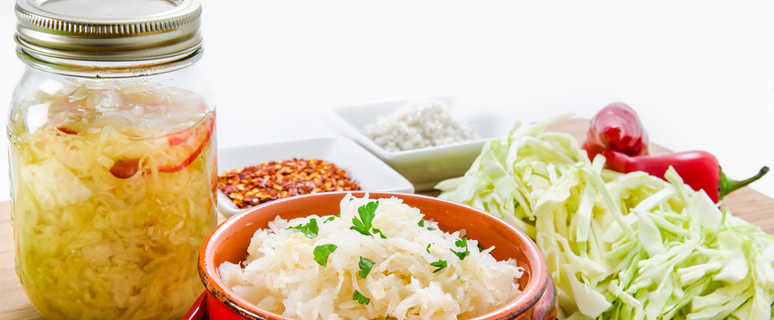
“Fermentos only serve mouldy food” – thus the rather striking headline used by the German daily “Die Welt” for a report on a group of predominately young people in US who consciously opt for healthy bacteria: for fermented food. “Fermentation”, the article says, “is the countertrend to sterile industrial food.” Fermentation involves natural microorganisms such as yeast or bacteria which come from the ingredients or the surrounding atmosphere. For humans, this offers several advantages.
On his sea voyages, which would last for months, the English sailor and explorer James Cook always took barrels of sauerkraut “because he was aware that fermented cabbage not only kept longer than fresh produce, but also protected his crew from scurvy, a disease resulting from vitamin deficiency”. Fermented sauerkraut contains significantly more vitamin C than fresh sauerkraut.
Thanks to the microorganisms in and on them, fermented foods keep longer and compared to non-fermented foods will often contain more essential nutrients. One example is sourdough. According to the article, “the ancient Egyptians discovered by accident that a bubbling mixture of water and ground-up grain can be used to bake bread which not only digests and tastes better, but also keeps longer. They had no idea, however, that the sourdough also gave the bread more nutrients.”
Yet fermentation not only preserves food, improves its taste and maintains nutrients, it also strengthens our immune system. It has been found that the fermentation processes in our gut are driven by thousands of microbes “which get along very well with the conspecifics which we ingest with fermented food. By providing our own microbes with additional stimulation, they are also thought to fuel our body’s defences.”
Finally, microbial fermentation results in dishes our diets would be hard to imagine without, among them sauerkraut, wine, beer, olives, as well as camembert and many other cheeses.
Dieser Post ist auch verfügbar auf: German

 31. Aug 2015
31. Aug 2015 Popular
Popular Recent
Recent Comments
Comments












